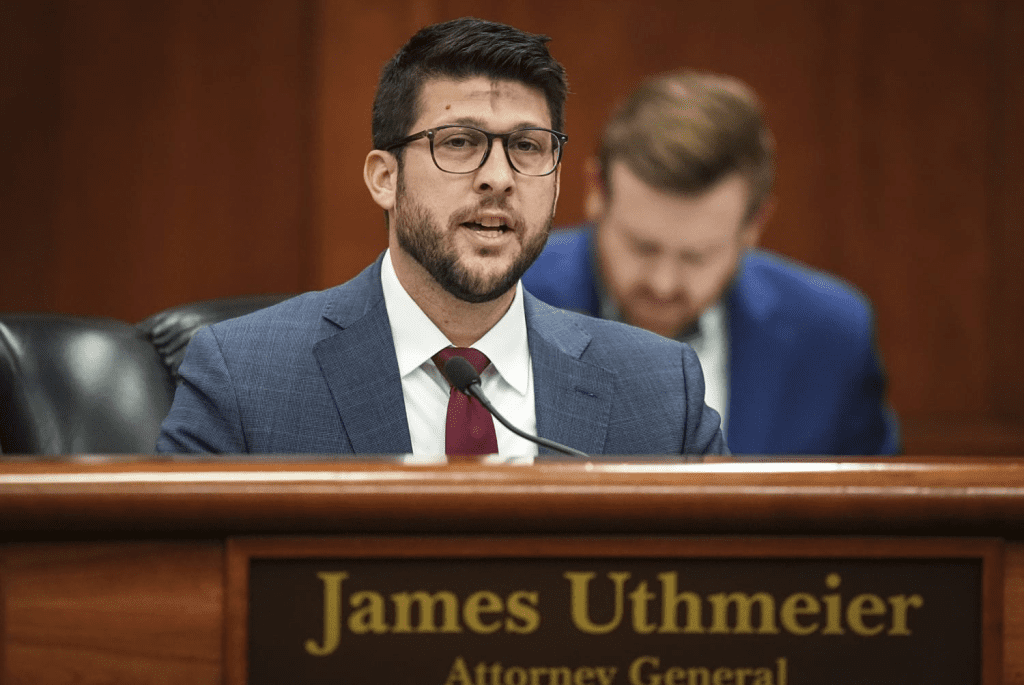Florida teacher placed on leave after Attorney General James Uthmeier accuses her of breaking state law by forcing students to use the gender-neutral title “Mx.” instead of “Ms.” or “Mrs.”
In Gainesville, Florida, a controversy is brewing that has drawn national attention to classrooms, language, and the limits of identity in education. A teacher at Talbot Elementary School has been placed on administrative leave after Florida Attorney General James Uthmeier accused her of violating state law by insisting that students address her with the gender-neutral title “Mx.” instead of “Ms.” or “Mrs.”

The case began earlier this month after parents complained that their children were corrected or reprimanded when using traditional honorifics. According to reports, the teacher—whose name has not yet been publicly released by the district—identified as nonbinary and had introduced herself to students using the title “Mx.”, a move she said was meant to create an inclusive and respectful learning environment. But in a state where education laws have increasingly emphasized traditional values and parental rights, the decision quickly sparked legal and political fallout.
Attorney General Uthmeier said in a statement that the teacher’s actions “constitute a willful violation” of Florida’s law governing parental rights in education, asserting that educators cannot compel minors to participate in language or identity expressions inconsistent with state-mandated standards. “The classroom is a place for learning, not ideology,” Uthmeier stated, emphasizing that “parents, not teachers, decide what’s appropriate for their children.”
The Alachua County School District confirmed that the teacher has been placed on paid leave pending an internal review. While the district declined to comment on specific personnel matters, a spokesperson acknowledged that the situation “raises important questions about professional conduct and compliance with state directives.”

The controversy immediately set off waves of reaction online. Supporters of the teacher have argued that being called “Mx.” is no different than choosing “Ms.” or “Dr.,” and that no harm was done to students. LGBTQ advocacy groups have accused the state of overreach, calling it another example of Florida’s tightening restrictions on expression in classrooms. Meanwhile, conservative activists have rallied behind Uthmeier, framing the case as a necessary stand against what they describe as ideological intrusion in public schools.
Talbot Elementary’s local parent-teacher association has also been drawn into the dispute. Some parents say they sympathize with the teacher and believe she was targeted unfairly. Others say they felt blindsided by the issue, claiming they were never informed that their children would be required to use non-traditional titles. “This isn’t about intolerance,” one parent told the local press. “It’s about respect for parental authority. You can’t force kids to say something their families don’t agree with.”

The broader context of the case comes amid Florida’s growing list of education reforms under Governor Ron DeSantis, who has made cultural policy a central part of his administration. Laws like the Parental Rights in Education Act, passed in 2022, have expanded state oversight of classroom content and restricted how teachers address topics such as gender identity. The new enforcement action taken by Uthmeier marks one of the first instances where those principles are being tested over teacher titles rather than curriculum.
Legal experts say the case could set a precedent for how far state officials can go in regulating personal identifiers in public schools. If the district rules against the teacher, the decision may embolden similar actions across Florida or even in other states adopting comparable laws.

For now, the Gainesville community remains divided. The teacher’s colleagues describe them as compassionate and dedicated, someone who prioritized emotional safety for students. Others argue that public schools must reflect the values of the communities they serve, not individual identity politics. As debate intensifies, the situation underscores the tension between personal identity and public accountability—a conflict playing out more visibly in classrooms than ever before.
What began as a question of how one teacher wished to be addressed has become a flashpoint in America’s ongoing cultural divide, with Florida once again at the center of the national conversation.



